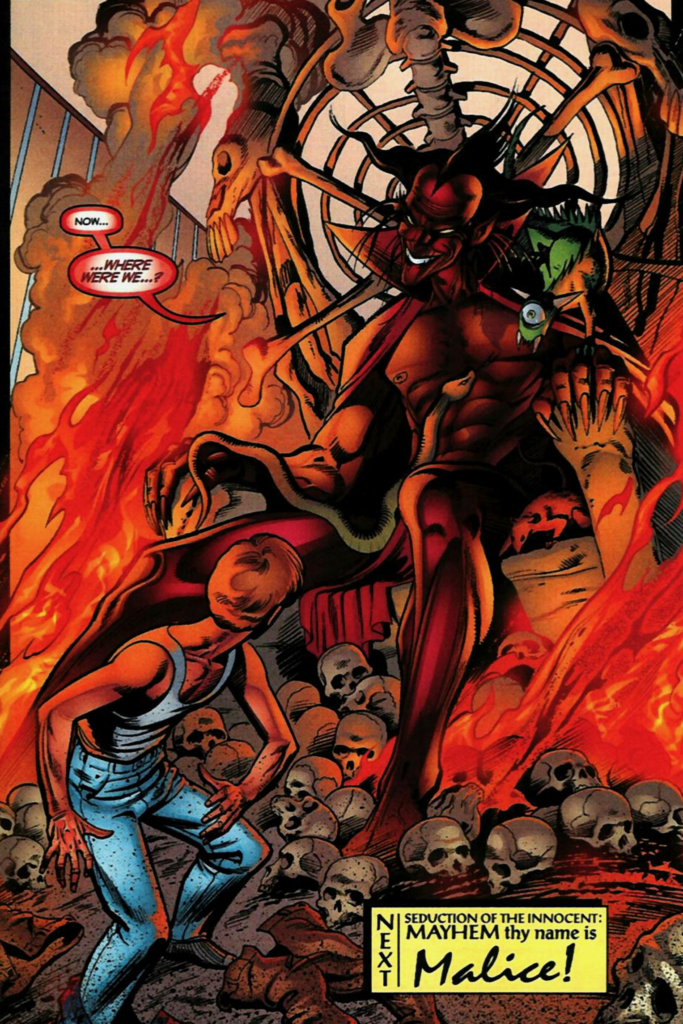
Norm Breyfogle gets a cowriter credit for this issue.
One of the (many) great things about Priest’s run on Black Panther is that he tied it so closely to governmental institutions and political “realities.” I mean, of course it’s fiction to the Nth degree (magic potions give you powers, there’s a guy made out of living sound, etc.), but it uses its far-out characters to explore real-world problems.
The last arc brought Wakanda to the brink of war with Atlantis and Latveria, and as a result the U.S. Government decides to expel T’Challa. Everett Ross, a CIA agent assigned as Black Panther’s handler (and the narrative center for this entire series), represents him. (Hey! That’s a conflict of interest!)
Captain America testifies on behalf of his brother in arms, and so we get a story from 1941. Other witnesses include Reed Richards and others affected by Panther.
We also get an overview of Panther’s history–including his betrayals of his Avengers companions and his leadership of Wakanda during periods of international struggle.
In the end, Ross’ defense is successful and the Senate decides to allow T’Challa to continue to travel to the United States.
This issue a really great retrospective of the character. It paints a complex picture of Black Panther by using actual events from Marvel history–without retconning or altering any of them.

In the end, Black Panther asks Monica Lynne to marry him, but she says no. We also see Everett Ross visited by Mephisto, who also appeared at the beginning of this series when we were first getting to know Ross.
